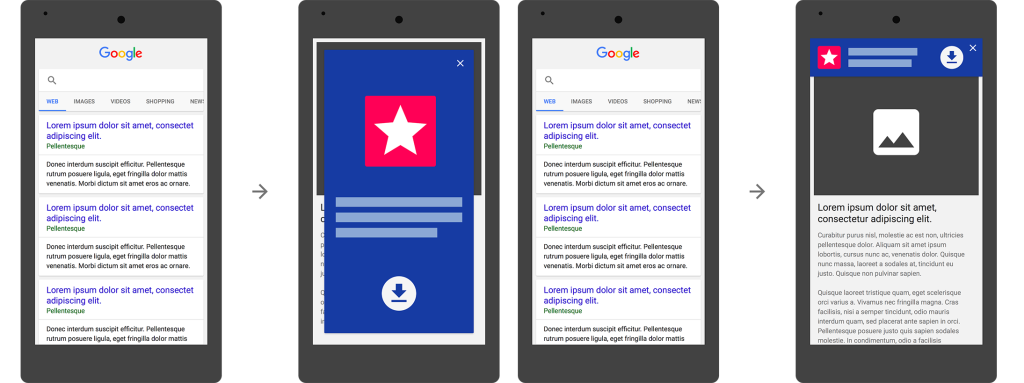Google Won’t Consider Sites Mobile-Friendly If They Use Those Annoying, Full-Screen App Install Ads
In April, some website owners had to figure out how to adjust quickly when Google’s algorithm started favoring sites that opened easily and smoothly on mobile devices — sites with pages that automatically resize to fit the screen, with large text and easily clickable links — and then bestowed higher rankings on those mobile-friendly sites.
Google has added another requirement for sites that want to rise higher in search results, announcing Tuesday that as of Nov. 1, sites that use those annoying app install overlays or pages will no longer be considered mobile-friendly.
“…sometimes a user may tap on a search result on a mobile device and see an app install interstitial that hides a significant amount of content and prompts the user to install an app,” a post on Google’s Webmaster Central Blog reads. “Our analysis shows that it is not a good search experience and can be frustrating for users because they are expecting to see the content of the web page.”
This doesn’t affect other kinds of interstitials, the post explains. Instead of app install interstitials, there are other ways to promote apps that don’t get in the way of what people are searching for, Google notes: Both Safari and Chrome support app install banners, which simply pop up at the top of a page and still allow users to see the page they’re viewing without having to take any action.
In July, Google made another push for sites to become more mobile-friendly, by adding alerts to mobile search results when sites use Flash, which is not now and never has been supported on iOS devices.
Want more consumer news? Visit our parent organization, Consumer Reports, for the latest on scams, recalls, and other consumer issues.


